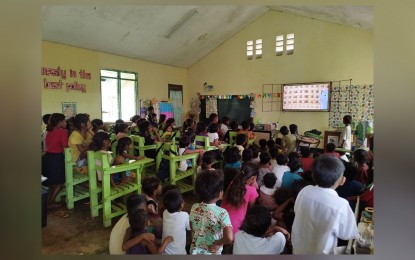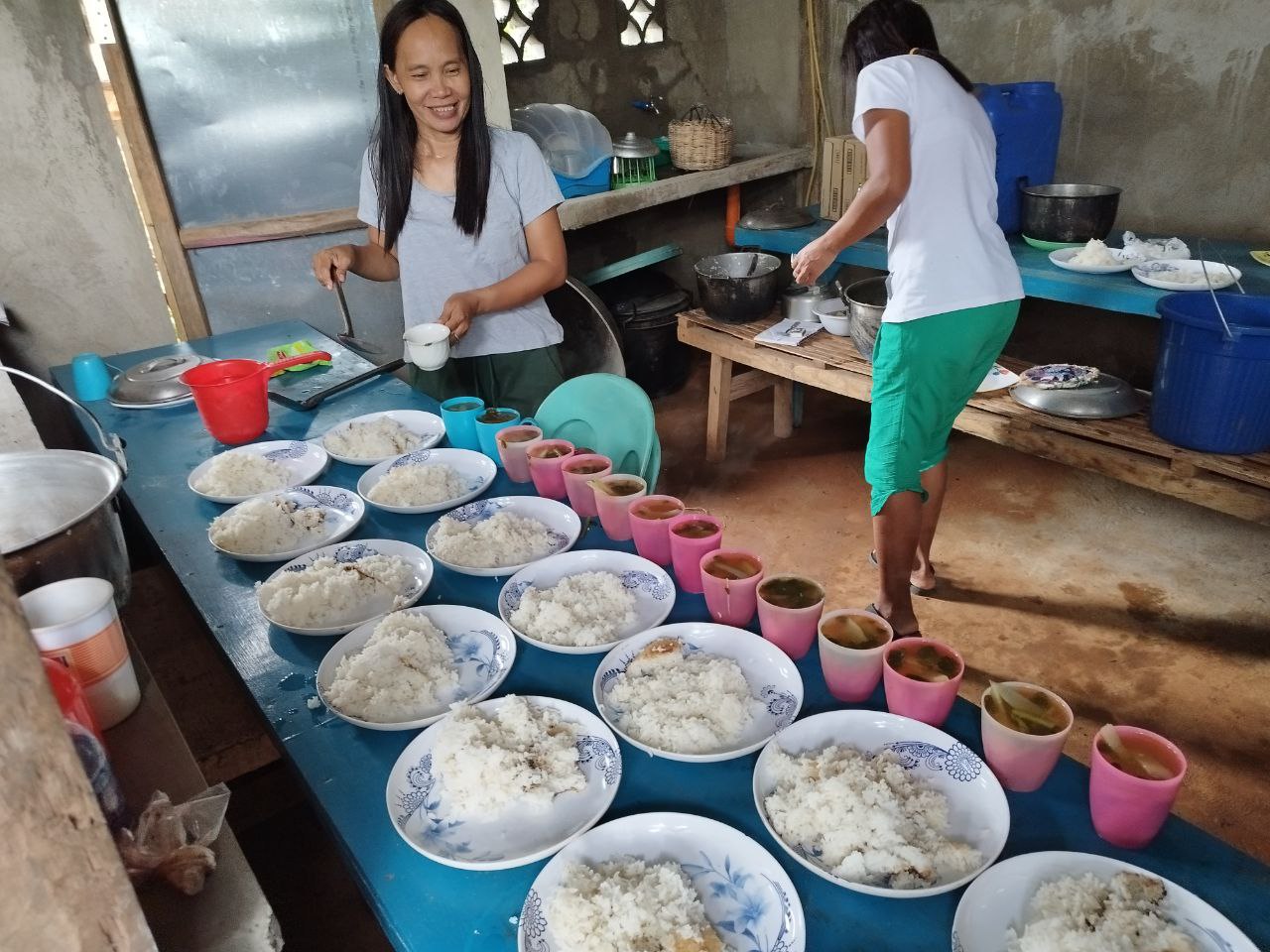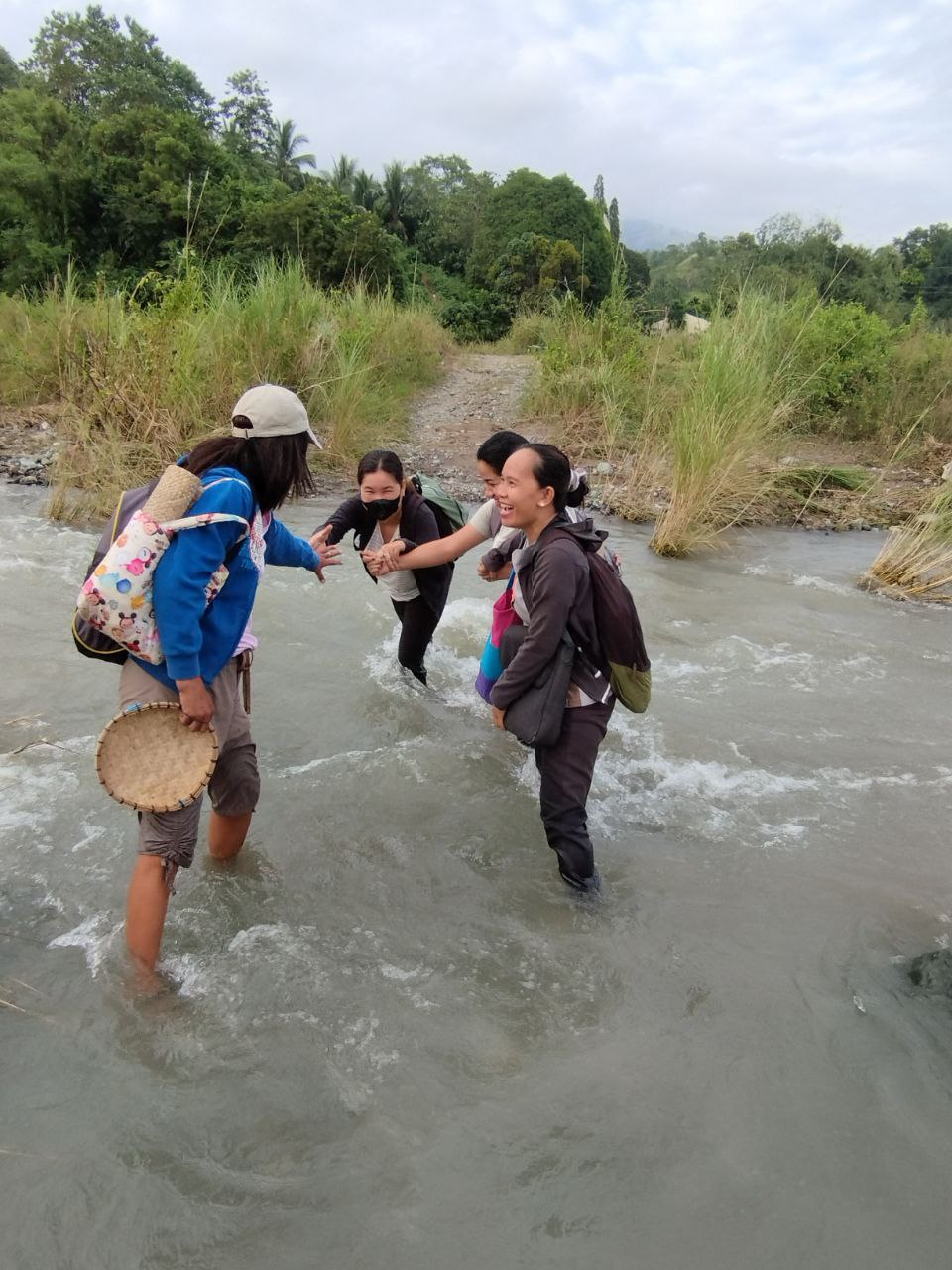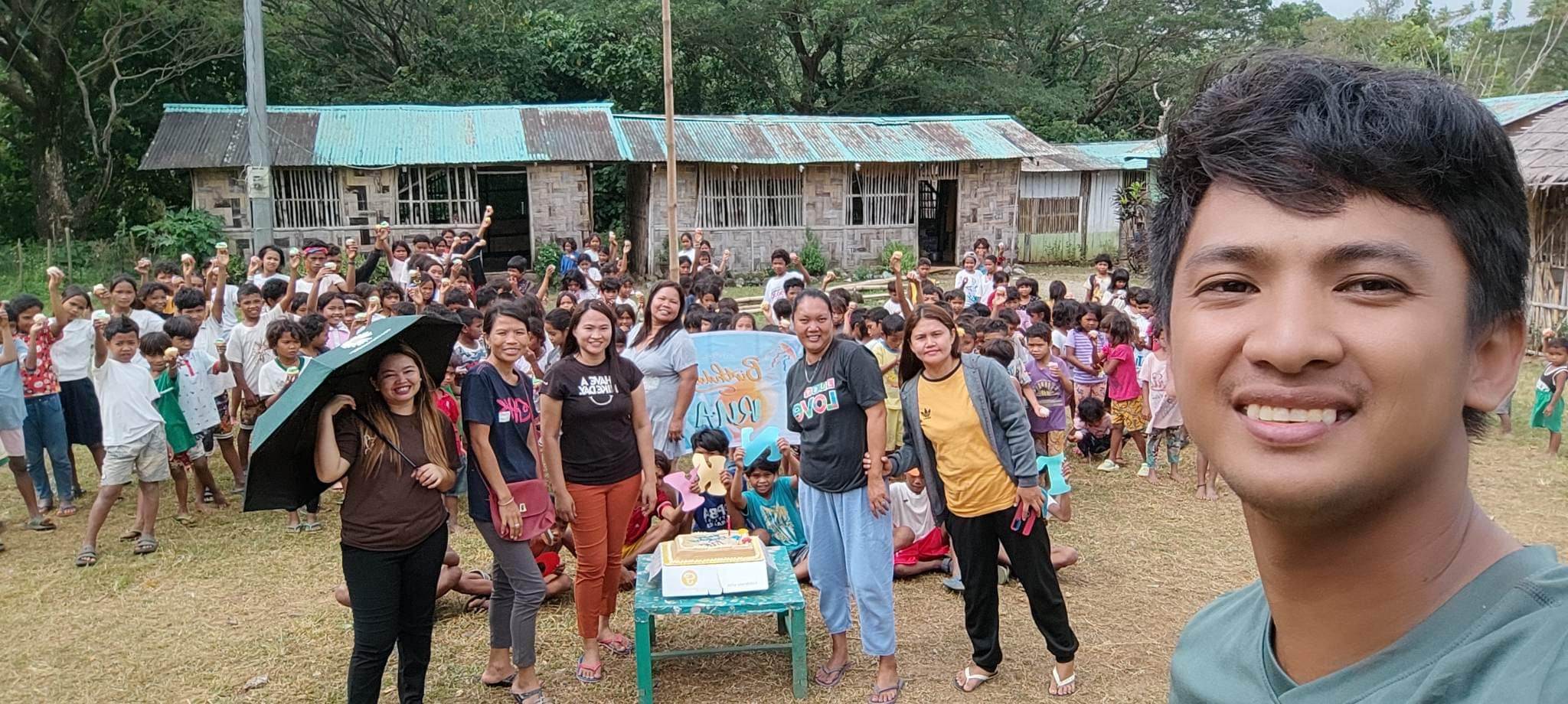
IRAYA MANGYAN LEARNERS. Iraya Mangyan learners watch the visual presentation in a classroom in Occidental Mindoro province in this pre-pandemic undated photo. The Indigenous Peoples Education teachers said Iraya Mangyan learners are very eager to learn despite challenges in resources. (Photo courtesy of Divina Casison)
MANILA – Many have excelled to thrive in greater career milestones but for some, genuine empowerment comes in setting aside recognition and promotion to uplift the marginalized sector.
This disposition is not only a gesture but also a matter of lifestyle for two teachers who have decided to reach out to the Iraya Mangyan tribe in Occidental Mindoro province.
In an interview with the Philippine News Agency, Divina Christy Casison, 44, said she has spent almost 15 years teaching Iraya learners at the Cabacao Elementary School-Mamara extension in the town of Abra de Ilog.
“Nag-ALS po ako, tinuruan ko po ‘yung mga elders. 'Yun po talaga, nag-two sessions po ako. Binukod ko po ‘yung mga elders at young ones (I did alternative learning system (ALS), I taught the elders. That's it, I conducted two sessions. I separated the elders and the young ones)," she said.
Casison narrated how Mangyan elders expressed their gratitude, noting that education has helped improve their exercise of voting.
But to effectively realize learning objectives, Casison said they are localizing the programs of the Department of Education (DepEd) appropriate to the Mangyan culture.
“The teachers must always be flexible. That's why the localization (and) indigenization are there which are dependent on the learners' interest so they can cope with the discussed learning competencies,” she said in mixed English and Filipino.
Casison said an average number of 18 learners of different ages come to school to hear their lessons nowadays.
However, teachers have observed through time that the younger generation of learners is no longer eloquent in the Iraya language.
Like Casison, Lily Ysit, 40, a senior teacher at Cabacao Elementary School-Banabaan Extension, underscored the cooperation with Mangyan elders to achieve target learning outcomes.
"'Yan po ang tinututukan ngayon ng Department of Education dito na kailangan muna pong i-ano ‘yung mga elders, kumbaga magkaroon po ng pagsama-sama para maging kaagapay po naming mga guro para ma-implement ‘yung curriculum para sa kanila (That's the focus of the Department of Education here, that we need to talk with the elders, so that we can have a collaboration with them as our support group," Ysit told the Philippine News Agency.
Ysit said young learners opt to use Tagalog as a medium of instruction.
“Mismong mga bata po, hindi po nila alam ‘yung kanilang sariling wika dahil naimpluwensyahan na po sila ng mga Tagalog (The children themselves do not know their own language as they are influenced by Tagalog),” she added.
Ysit insisted the DepEd thus needs to coordinate closely with Mangyan elders.
These struggles require their double effort considering the impact of an almost three-year learning halt due to the coronavirus disease 2019 (Covid-19) pandemic.
Hounding challenges
Besides challenges to the teaching-learning process, the two Indigenous Peoples Education (IPEd) teachers expressed hounding challenges among learners within their area of assignment.
In tears, Casison cannot help but recall times when some of the learners were not able to eat adequate food in school.

Divina Christy Casison, an IPEd teacher, voluntarily prepares food with her fellow teachers for Iraya Mangyan learners in this undated photo (Photo courtesy of Divina Casison)
“Sobra kasing nararamdaman ko ‘yun ma’am, although may mga bata na nakakakain. Minsan may bigas. But most of the time talaga is ‘yung balinghoy or nami na sinasabi nila. So pagdating ng tanghali, wala na po talaga (I really feel [sad] ma’am, although some of the kids can eat. Sometimes they have rice. But most of the time, (they are eating) cassava. So when lunch time comes, there’s no more left to eat),” she said.
“Kaya kaming mga teacher, kung ano ‘yung kaya naming bitbitin, totoong buhay po ‘yan na wala naman na sa budget ay talagang ginagawa po namin ‘yun (That’s why we, as teachers, whatever (food) we can bring, that’s true-to-life, even though it’s beyond our budget, we’re really doing it),” she added.
Inevitable seasons also come when learners tend to set aside schooldays to help provide for their families' needs.
Casison cited corn harvest in Occidental Mindoro as it peaks every month of March.
“Hindi po namin sila masaway, hindi namin sila mapigilan kasi ‘yun lang din ‘yung source ng income na pwede at minsan lang mangyari sa loob ng isang taon (We can neither reprove nor stop them because that’s their only source of income and that only happens in a year),” she said.
However, Ysit said learners remain diligent to attend their classes as time permits.
“‘Yun ang kanilang trabaho sa ngayon. Pero so far naman po, kumbaga umabsent sila, kinabukasan o sa ilang araw, sisikapin naman po nilang pumasok po (That’s their current work. But so far, even if they are absent, they make an effort to come to school the next day or in the next few days),” she said.
Moreover, struggles are not only limited to learners’ food inadequacy and labor for livelihood, as Casison and Ysit face risks during rainy season.
The two teachers said there were days they needed to literally cross flooded waterways.

Casison shared how thrilling their strategies are just to reach the areas of learners.
“Pag malaki ang ilog is isasakay sila sa interior. Yung goma na malaki at magpapaagos sila (If the river's water is high, they will ride the (wheel) interior. (They will ride) that big rubber until they come across),” she said, referring to Ysit’s area of assignment.
Casison even shared how they were making fun of the situation, not showing any sign of fear or backing out.
“May time po na nagbibiruan kaming dalawa, kapag ako ang nalunod ay lasug-lasog ang katawan ko sa bato. Sabi naman ni Maam Lily, kapag siya ang nalunod, diretso siya sa dagat ng Mamburao (There was a time we were making fun of it, (I said) that if I drown, I will be found dead torn to pieces in the rocks. Ma’am Lily (meanwhile) said that if she gets drowned, her body will go directly to the sea of Mamburao town),” she said.
Calling over higher opportunities
Despite these challenges, both teachers indicated a fair share of sacrifice, setting aside opportunities that may have led them to greener pastures.
For Ysit, this decision serves as a response to a calling with a desire to pay it forward after being given the chance to be a teacher through self-support and sponsor aid.
“Bata pa lang ako, nakikipamuhay na ako sa mga batang katutubo. Alam ko na kung papaano sila nabu-bully. Paano ‘yung tingin sa kanila na ganun kababa. So ‘yun ‘yung chance ko sabi ko, ito na. Ito na ‘yung panahon. Isa rin ‘yun kaya sabi ko magti-teacher ako (When I was young, I grew alongside the IP children. I know how they were being bullied, how they were looked down upon. That’s when I realized that this is it. This is the time, that’s why I said I will become a teacher),” she said.
Ysit said educating IP learners means more to her than enjoying higher positions.

“May chance na po akong maging head teacher inayawan ko po dahil ayaw ko pong mapalipat sa ibang lugar… Hindi ko po kayang iwanan ang lugar na ito lalo na po ang mga bata. Dahil hindi lang po support ang kailangan nila kundi protection with love and concern (I had the chance to be a head teacher but I declined because I don’t want to be reassigned. I can’t leave this place, especially the children. Support is not enough, they need protection with love and concern),” she added.
Ysit recalled how she urged her husband to stay near the learners’ area, having no second thoughts at all.
Likewise, Casison said she chose to leave other possible opportunities despite her credentials to educate the Iraya learners.
“Mas doon ko po naramdaman ‘yung essence ko bilang guro na nandoon pa pala ‘yung calling ko, not only for wage kasi mas may nangangailangan sa akin to uplift their lives (That is where I felt my essence as a teacher. That this is my calling, not for the wage, but because someone needs me to help them uplift their lives),” she said.
The two women educators said it is efficient for teachers to explore and enjoy the profession alongside collaborative engagements with other stakeholders to provide an excellent learning environment for learners.
And as the country celebrates Women's month, they urged other educators to be more diligent and patient with children as they possess different dynamics and potentials of skills and character.
And when hardship tries to bring teachers down, Casison and Ysit believe that it is best to pause for a rest, and trust God for the sustenance of strength and grace.
To date, there are tens of thousands of teachers who have dedicated their lives to educating IP learners.
According to the DepEd, there are 19,500 teachers in 3,635 IPEd-implementing schools in the country.
Current programs intended for these schools include culturally-appropriate initiatives like Brigada Eskwela, Brigada Pagbasa, school vaccination programs, Last Mile Schools exterior painting and Gulayan sa Paaralan. (PNA)
